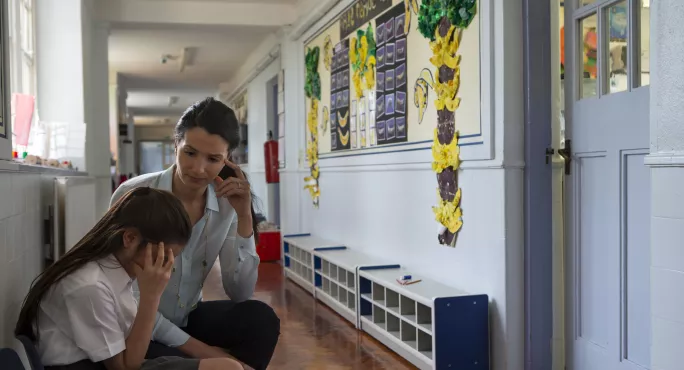The number of children who are excluded from schools could rise as more young people are likely to return to school with challenging behaviours owing to the lockdown, MPs have been told.
And schools may not be “equipped” to recognise that trauma linked to the pandemic may lead to difficult behaviour, Kiran Gill, chief executive of education charity The Difference, told the Commons Education Select Committee.
Pupil referral units (PRUs) are “not resourced to cope” with a potential surge in exclusions and they could be “thrown into special measures”, Ms Gill said.
Behaviour: 4 areas the DfE wants schools to focus on
Coronavirus: ‘Trauma gap’ could overwhelm schools and PRUs
DfE: Heads told to sanction pupils for coughing over others
She said young people who have interacted with social services are 20 times more likely to be excluded as their experiences at home, including domestic violence and substance misuse, can lead to mental health problems that they struggle with “particularly when returning to school”.
On the impact of Covid-19 on this group, she said: “There is increased vulnerability and schools particularly need to be aware of who their vulnerable learners are and to be resourced to deal with what will potentially be quite difficult behaviour on return as a result of mental health problems for those young people.”
Ms Gill added that the charity was “concerned” that the numbers of excluded children will rise when schools go back full time because more children will have experienced greater trauma.
Peter Sandiford, chief executive of the Independent Children’s Homes Association, said members were worried about children in care returning to school next term.
“The concern is as they go back into school, how much they are going to have their emotional needs met going through that transition,” he told the committee on Wednesday.
MPs were also warned that there may not be enough transport for all vulnerable children to use when schools fully reopen in September with staggered start times, with one council chief predicting potential “chaos”.
Jonathan Gullis, Conservative MP for Stoke-on-Trent North, asked local authority leaders what funding will be required for all the extra buses and taxis needed to get looked-after children or pupils with special educational needs and disabilities (SEND) to school in September.
John Coughlan, chief executive of Hampshire County Council, responded: “It would be a lot of money to crack it but to be honest with you I’m reliably advised literally that there aren’t the buses physically to pay for to get the children in place in the right way.
“I think we’ve got to re-contract with parents who may be well placed to do more of their own transporting and try and find ways in which we can support them financially to do so, otherwise you’re going to have chaos.”
MPs were also told that the government should prepare for a potential second lockdown and a return to home schooling in the future.
Yvette Stanley, national director for social care at Ofsted, told MPs she was concerned about young people getting involved in “county lines”.
She said: “We’ve seen drug dealing now going on outside supermarkets because they can hide it in the queues, etc.
“We’ve seen young people dressed up in protective uniforms so it looks like they’re out there doing purposeful prevention work and actually they’re dealing on a county line.
“We’re really worried about how these have developed and it will need firm partnership between schools, local authorities, the police and wider partners to respond to the changing evolution of the processes.”




